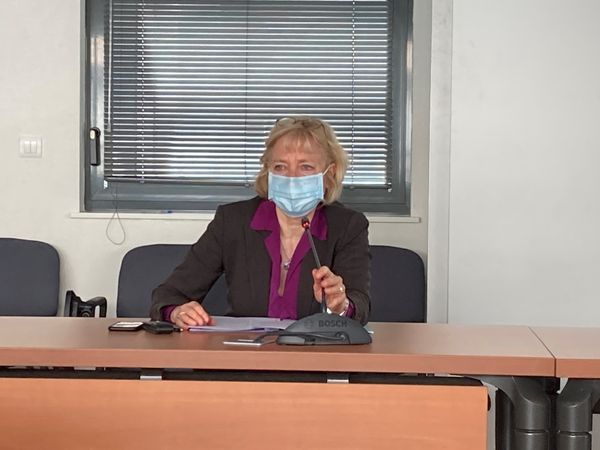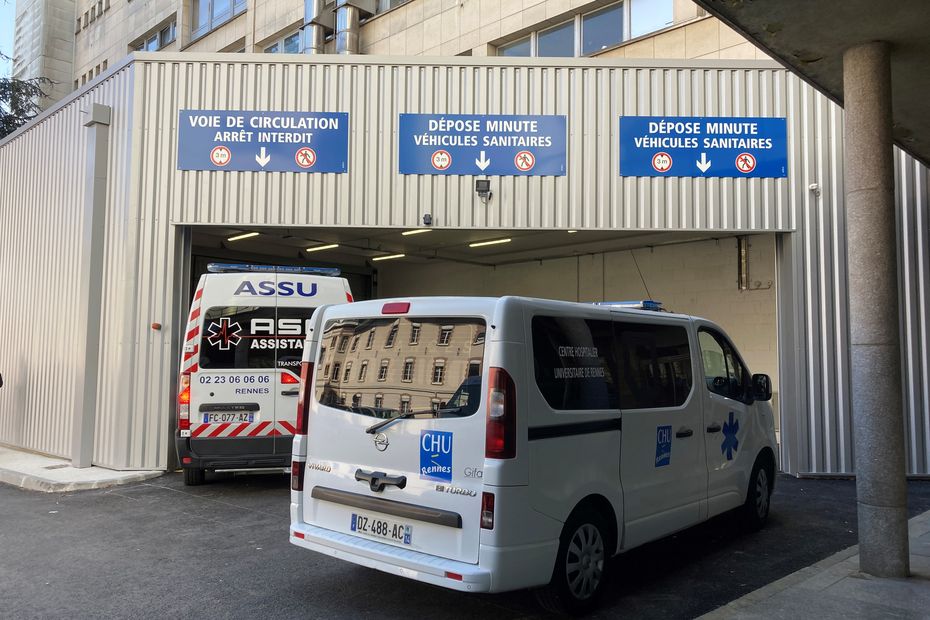147 Covid patients are currently hospitalized at Rennes University Hospital, a level never reached. A strong influx of patients is expected in April. “Non-urgent” operations are deprogrammed, but the hospital says “stop” and calls for the solidarity of other establishments, private and public.
–
How to cope with the influx of patients in intensive care units. It has never been so important at Rennes University Hospital: 147 people sick with Covid-19 are currently being treated there. The peak of the second wave was 122.
It is therefore necessary to create new resuscitation beds and “it can’t be done with a magic wand “ indicates Professor Matthieu Revest, infectious disease specialist.
Beyond the equipment, qualified personnel
First, beds and equipment. There is only one solution for this: reduce activity, especially in surgery. This frees up beds and also qualified staff. 83 intensive care beds, Covid or not Covid, are open at the Rennes University Hospital thanks to the closure of 7 operating theaters (out of 35).
This makes it possible to “recover” anesthesiologists, for example, who have resuscitation skills. “These rooms can also accommodate patients in intensive care” specifies Véronique Anatole-Touzet, general manager of the Rennes hospital.

Véronique Anatole-Touzet, Managing Director CHU Rennes
•
© Eric Pinault / France Televisions
–
Avoid “loss of luck”
The Rennes University Hospital has reached, or even exceeded in certain specialties, the rate of 25% of unscheduled procedures. And it becomes complicated to go further. “We must avoid any loss of luck” explains the director, ie do not postpone a treatment if that reduces the chance of success.
“We must also preserve the CHU’s recourse activities”. It is these acts that are so specific that they are not performed elsewhere in the region. Neurosurgery, cardiology, heavy oncology or even transplantation operations, for example.
Call for territorial solidarity
At this stage, only territorial solidarity can preserve the quality of care. Professor Yannick Malledant, resuscitator, is also co-coordinator of critical care for the Brittany region. Eight medical regulators share their information to know at the instant “T” the level of tension in intensive care everywhere in Brittany.
“We coordinate the transfer of patients, explains Yannick Malledant, in order to avoid saturation in the establishments and “each intensive care unit must keep a margin of 2 to 3 beds permanently to face the unforeseen”. This solidarity system is holding up but still needs to improve.
The private clinics of the Rennes metropolitan area are playing the game: welcoming vascular surgery patients, making anesthetists available or even opening two additional intensive care beds at the Saint-Grégoire hospital, “but in medicine, we will need a stronger solidarity to allow us to maintain our specific missions” claims the director of the CHU.
The CHU mobilized for several months in the face of covid calls for territorial mobilization for fear of saturation + ++ affirms Véronique Anatole Touzet CEO of the CHU @ArsBretagne pic.twitter.com/f4AmAtGJVp
— CHU de Rennes (@CHURennes) March 30, 2021
The health care system cannot do everything.
“April will be very difficult, we know that”, announces Matthieu Revest. The CHU admitted 23 patients on the same day recently “. A figure that should appeal to everyone according to the infectious disease specialist, who invites everyone to help the hospital. “The weather is nice, so when you see someone it is outside. The health care system cannot do everything. Everyone must make an effort to apply the barrier measures”.
Efforts also for the post-crisis period because caregivers already know it. Once the epidemic is under control, hospital activity will suffer the wave of deprogrammed interventions. Additional work for at least six months at the Rennes University Hospital.
–

